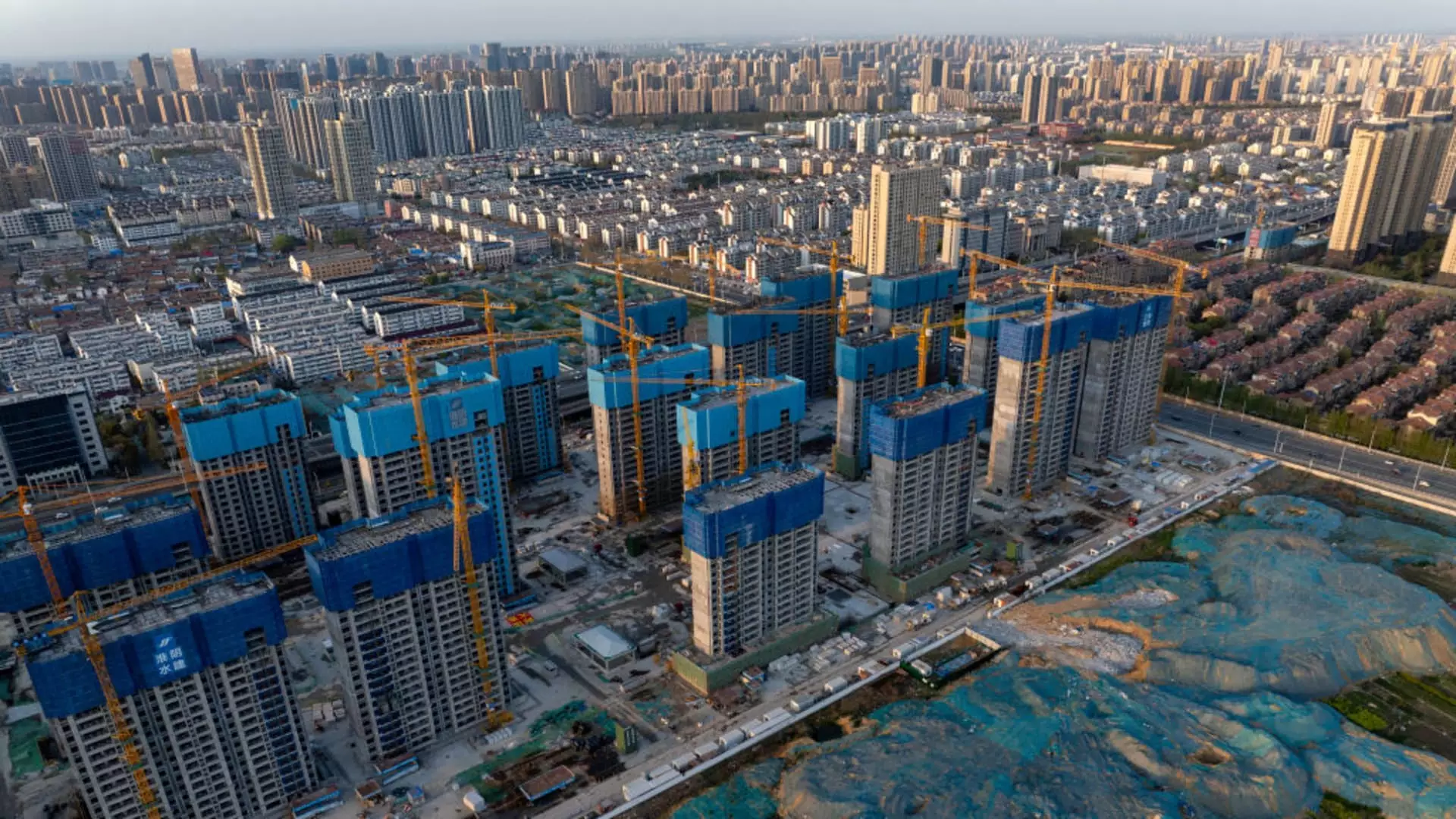China is currently facing the challenge of convincing people that home prices are set to rise in order to spur economic activity. Richard Koo, chief economist at Nomura Research Institute, emphasized the importance of creating a narrative that signals the bottoming out of prices and the subsequent upward trend. However, there is uncertainty surrounding whether prices have actually hit rock bottom. The sluggish start to the year in terms of business and consumer loan appetite coupled with a decline in home prices suggest that China may be heading towards a “balance sheet recession.”
The real estate sector, along with related industries, plays a significant role in China’s economy, accounting for a substantial portion of the GDP. However, the property market has been in decline, especially after Beijing’s crackdown on developers’ excessive debt reliance and the shock from the Covid-19 pandemic. Despite government statements indicating that real estate is in a period of “adjustment,” analysts remain cautious about the future trajectory of home prices. China has been focusing on fostering new growth drivers such as manufacturing and new energy vehicles to offset the slowdown in the property market.
An important factor contributing to China’s economic challenges is the shrinking population, which is a stark departure from Japan’s experience during its economic downturn. Richard Koo pointed out that the narrative of encouraging borrowing and home buying becomes more difficult to justify in a scenario where the population is decreasing. The Chinese economy officially grew by 5.2% in 2023, marking the first year post-Covid-19 controls. Beijing has set a growth target of around 5% for 2024, but analysts suggest that achieving this goal may require additional stimulus measures.
Chinese authorities have been cautious about implementing large-scale stimulus measures, with a reluctance stemming from past experiences. The 4 trillion yuan stimulus package launched in response to the global financial crisis was initially met with skepticism and led to a significant drop in stock prices. While the stimulus initially led to rapid growth, Beijing continued to pump money into the economy, resulting in overheating, speculation, and corruption. As a result, the current government under Mr. Xi Jinping is hesitant to roll out extensive stimulus packages, fearing a repeat of past failures.
Looking ahead, Richard Koo suggests that China should consider stimulating its economy to avoid a balance sheet recession. However, it is essential to withdraw support once growth reaches a sustainable level, ideally around 12%. Balancing economic growth with financial stability is crucial for China’s long-term prosperity. By addressing the challenges in the real estate market, navigating demographic shifts, and implementing prudent economic policies, China can position itself for sustainable and inclusive growth in the years to come.


Leave a Reply